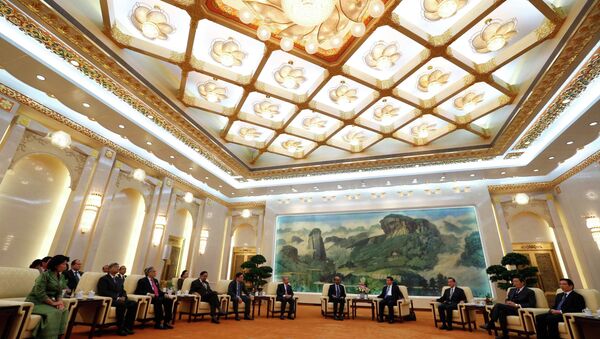Together with the BRICS New Development Bank, the AIIB is seen as an alternative to the Western-led financial institutions such as the World Bank and the International Monetary Fund.
China's initiative was largely welcomed with open arms but not everyone was and remains happy.
The United States and Japan are among the few countries, which decided not to join. Washington tried to pressure several other states, allegedly including Australia and South Korea, to avoid the development bank.
The US and Japan get left behind on their TPP scheme while everyone else joins China's AIIB bank pic.twitter.com/HrIRjfAVSu
— lauraroslin (@lauraroslin7) 24 апреля 2015
Much to the dismay of the US, fifty-seven countries have stated their intention to join the AIIB as founding members, including Germany, France, Israel, Italy, Russia and the United Kingdom. Even countries wary of China, like India and Vietnam, see the opportunity in joining the AIIB and they simply cannot afford to miss it.
"Germany and the United Kingdom decided to join the AIIB since global economic development shifted to Asia. GDP growth in the G7 countries amounts to less than 2 percent, while some countries in Asia are developing at nearly 7 percent rate," Japan's Mainichi newspaper noted.
In 2012, the Organization for Economic Cooperation and Development said that combined GDP of China and India would exceed that of all OECD member states by 2060. "Evidently, Asian countries will play the leading part in the world," the media outlet stated.
Why be global? By 2050, the GDP of China, India, Brazil, Russia, Indonesia, Mexico & Turkey will be 2x that of G7 nations #aacsbcurriculum
— BizEd Magazine (@BizEdMag) 19 мая 2015
Then again, this unity was shattered long before AIIB became an issue, namely when Russia was not invited to participate.
Asia's imminent rise and Russia's international clout bring another question to the fore, what can G7 really achieve without Russia and China taking part in the forum, which hopes to bring about a real change in the world?



